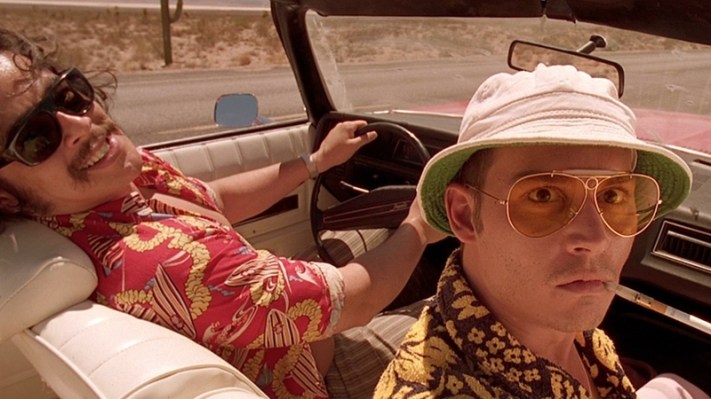Inside a casino whose theme is an empire that collapsed into venal decadence, middle-aged computer-security professionals clutching cups half-full of free Veuve Clicquot line up to collect VIP nightclub passes. Outside, teenagers who live in tunnels beg on the pedestrian overpasses. Earlier, the man turning today’s empire into a surveillance state was met with warm applause.
He was careful to only talk about specific programs. To bureaucrats, only specific programs matter, not the cumulative effects of all those specific programs combined. And as long as you frame the subject as a discussion of specific programs, you don’t have to talk about the entirety of the surveillance the government performs.
To bureaucrats there is a huge difference between one arm of the government collecting metadata for all American phone calls overseen by a secret court; and another that monitors web traffic; and another that sends SUVs full of police to investigate households who, apparently, post photos of firecrackers to Facebook; and yet another monitoring social-media activity. They’re different programs, after all. But to the people under surveillance, there really seems to be no difference at all.
On the other side of the world, the whistleblower whose revelations led directly to 200 members of Congress voting to defund one of those programs is a fugitive in Russia’s uneasy embrace. On this side, another whistleblower was acquitted of an absurd charge of “aiding the enemy” but was found guilty of espionage and other charges that could land him in jail for 136 years.
But our trip was different. It was a classic affirmation of everything right and true and decent in the national character. It was a gross, physical salute to the fantastic possibilities of life in this country–but only for those with true grit. And we were chock full of that.
Pretty much everyone at Black Hat is hiring. The business of fear is booming. As I walk past the Pure nightclub I see the words “CYBERCRIMINALS LEVERAGE BIG DATA” projected on its outer wall above the Las Vegas Strip.
Earlier, Jeff Moss aka Dark Tangent, who eight years ago sold Black Hat to UBM for some $14 million, remarked onstage: “Anyone here remember the late 90s? The Clipper chip? How the government might want to listen in our phone calls? …How times have changed.” It got a big laugh.
Later, the blue-screened silhouettes of two near-naked women gyrate above a crowd attending the party thrown by Blue Coat Software. A few Blue Men halfheartedly wander through the party waving tubes. Blue Coat has a history of selling Internet-monitoring software that winds up in the hands of totalitarian regimes; the EFF has condemned their “blatant lack of concern for human rights.”
And that, I think, was the handle–that sense of inevitable victory over the forces of Old and Evil. Not in any mean or military sense; we didn’t need that. Our energy would simply prevail. There was no point in fighting–on our side or theirs. We had all the momentum; we were riding the crest of a high and beautiful wave…
So now, less than five years later, you can go up on a steep hill in Las Vegas and look West, and with the right kind of eyes you can almost see the high-water mark — that place where the wave finally broke and rolled back.
— Hunter S. Thompson, Fear and Loathing in Las Vegas
[Image from the film Fear and Loathing in Las Vegas]
